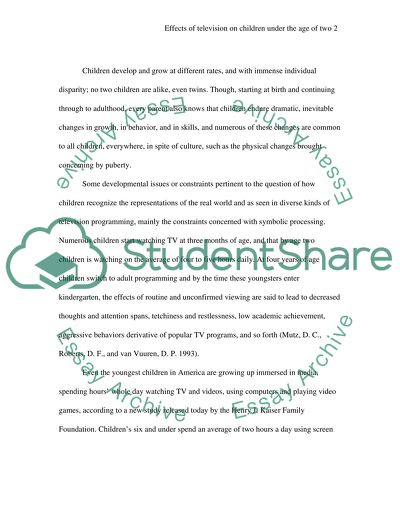Effects of television on children under the age of two Essay. Retrieved from https://studentshare.org/miscellaneous/1528542-effects-of-television-on-children-under-the-age-of-two
Effects of Television on Children under the Age of Two Essay. https://studentshare.org/miscellaneous/1528542-effects-of-television-on-children-under-the-age-of-two.


